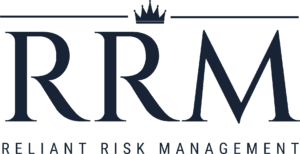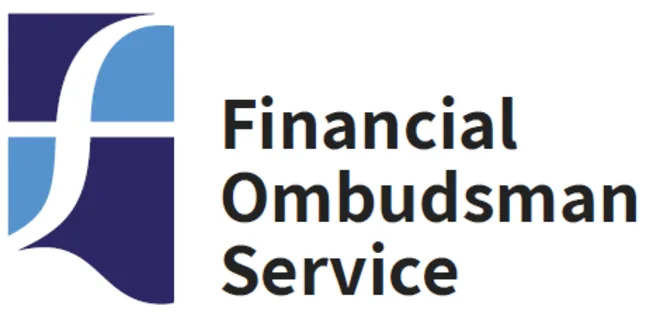WHAT IS COMMERCIAL PROPERTY AND LANDLORD INSURANCE?
Property owners insurance, also referred to as commercial property insurance or landlord insurance, is designed to cover let properties. This type of insurance provides a higher degree of protection than the typical home insurance policy.
Often recognised as business property insurance or rental property insurance, this insurance safeguards you if the building, fixtures & fittings and landlord contents suffer loss or damage.
Like home insurance, property owners insurance provides cover for your property against a wide range of unexpected events such as fires, flooding, burst pipes, and storms. It provides complete protection for your property against any unforeseen events.
Reliant Risk Management insurance are experts in providing bespoke insurance policies to safeguard your property and cover you against loss of rent.

IS IT NECESSARY FOR ME TO HAVE LANDLORD INSURANCE?
Although there is no legal obligation to purchase commercial property insurance, it’s highly recommended. Even with the most reliable of occupants, unpredictability can occur. Property owners insurance offers comprehensive cover to safeguard you against any claims.
Landlord insurance is required if your property is let to tenants under a buy-to-let arrangement. Some mortgage lenders will even demand that you have adequate insurance cover as it offers protection against unforeseen events, safeguarding your assets and investments.
Reliant Risk Management Insurance brokers have extensive knowledge and experience in arranging property owners insurance for hundreds of clients.We will conduct a comprehensive fact find in order to establish your demands and needs and offer you competitive terms using our panel of grade A insurers.
WHAT IS INCLUDED IN LANDLORD INSURANCE?
You can tailor your cover to include features which best suit your requirements. The aspects you may wish to include would likely consist of:
- Protection against theft, fire, and floods
- Structural building’s cover
- Inclusion for built-in amenities, such as fitted kitchens and bathrooms
- Protection for furniture, carpets and curtains (this excludes any belongings of your tenants)
- Legal expenses should you find yourself in court
- Insurance for vacant periods between tenants
- Cover for accidental damage by tenants
- Insurance for boiler malfunction
- Protection against loss of rent
Do remember, the more extensive your coverage, the higher your commercial property insurance premium is likely to be. Carefully consider your budget to ensure you buy the best business property insurance that meets your needs. Always keep in mind that property owners liability insurance helps you stay protected against unforeseen events that could potentially affect your assets and investments. Be proactive and consult with experienced insurance brokers in Peterborough to help guide you at every step of your insurance journey.
WHAT IS NOT INCLUDED IN LANDLORD INSURANCE?
Commercial property insurance usually does not cover:
Tenant possessions – tenants must arrange insurance cover for their own contents
Degradation over time – buildings or items damaged through normal use over a period are typically not covered.
Animal-induced damage – an extension to your policy may allow for pet damage at an additional charge. However, Property owners insurance won’t cover pest-inflicted harm – such as damage caused by mice or wasps.
Malicious damage by tenants.
Please refer to the policy wording and documents to check exclusions and limitations of your policy to ensure you understand what is and isn’t included.
WHICH CATEGORIES OF INSURANCE ARE AVAILABLE FOR LANDLORDS?
Property protection for landlords covers your building against incidents of loss or destruction, offering financial compensation in the aftermath of a fire, storm, flood, etc.
Should you be renting out a furnished property, you may find it prudent to consider property owner’s asset protection as a safeguard for your possessions. Additionally, you might want to include accidental damage cover to protect yourself against damage caused by tenants.
Loss of rent cover may provide a safety net if your tenants are unable to fulfil their rental obligations.
This protects you against any claims brought by members of the public in the event of them or their property suffering financial loss or harm within your premises or as a result of your property.
What Is the cost of landlord insurance?
The expense associated with property insurance hinges on several variables:
Level of cover
Ensure that you are not being charged for unnecessary cover and additional features which you do not need.
Property location
You can expect to pay higher insurance premiums if your property is located in an area regarded as high risk due to previous claims or high crime rate.
Property type and cost
The size and type of property will have an impact on the premium as well as the value of the building the insurer expects to pay in the event of a re-build.
Tenant type
Higher risk individuals include students, asylum seeker and benefit assisted tenants.
Claims history
Claiming on your insurance will mean you pay a higher premium next time.
HOW TO SECURE MORE AFFORDABLE PROPERTY OWNERS INSURANCE?
Commercial or residential property ownership is a serious business endeavour, hence compromising on your insurance may not be the wisest move. However, there are several factors that may help to reduce your premium.
Enhance your security measures – robust locks, intruder alarm systems, and CCTV can render your property less appealing to potential thieves. Insurance companies may perceive this as low risk and subsequently lower your insurance premium.
Amplify your excess – voluntary excess is your contribution towards a claim. Increasing this can reduce your insurance premium cost – however, ensure it’s at a level you can financially manage.
Prevent unoccupied spans – insurance underwriters view vacant properties as high risk, so it is prudent to avert intervals between occupants where possible.
Screen your tenants – insurance companies assess the risk different categories of tenants represent – for instance, students are often perceived as higher risk compared with working professionals.
A provider you’ve never heard of could offer an excellent deal, so the best landlord insurance isn’t always from the largest providers.
What will I need to provide to get a quote?
We will need some basic details in order to obtain a quote
- Present/previous insurance policy documents (if available)
- Property details
- Tenant related information
Details of required cover
Frequently Asked Questions about landlord insurance
Landlord insurance is specifically designed for property owners renting out their properties. It offers financial protection against damages to the building, fixtures/fittings and landlord contents. Loss of rent and legal expenses can also be covered if required.
If you own a property which you let out to tenants under a tenancy/lease agreement, it’s highly advisable to have landlord insurance. Your regular home insurance policy may not cover losses incurred in a rented property.
Typically, landlord insurance covers property damage, loss of rent due to uninhabitable conditions, legal expenses in case of tenant disputes, and liability claims made against you.
While it’s not legally required, many lenders stipulate landlord insurance as a requirement for mortgage approval. Plus, it offers you peace of mind by safeguarding your investment against unforeseen issues/probems.
The cost of landlord insurance varies depending on factors like location, type and size of the property, level of cover and building value.
Yes, landlord insurance is typically considered a deductible expense for tax purposes. However, you should consult with a tax professional to understand the specifics.
Improving the security of your property, increasing the deductible, are a few ways you can potentially reduce your landlord insurance premiums.
‘Loss of Rent’ protects you in case your property becomes uninhabitable and you lose rental income as a result.
Most landlord insurance policies cover damage to the property caused by events like fire or storm. However, malicious and accidental damage can be covered as an additional feature.
Yes, you can switch your landlord insurance provider. However, ensure that there’s no gaps in your cover during the transition.









